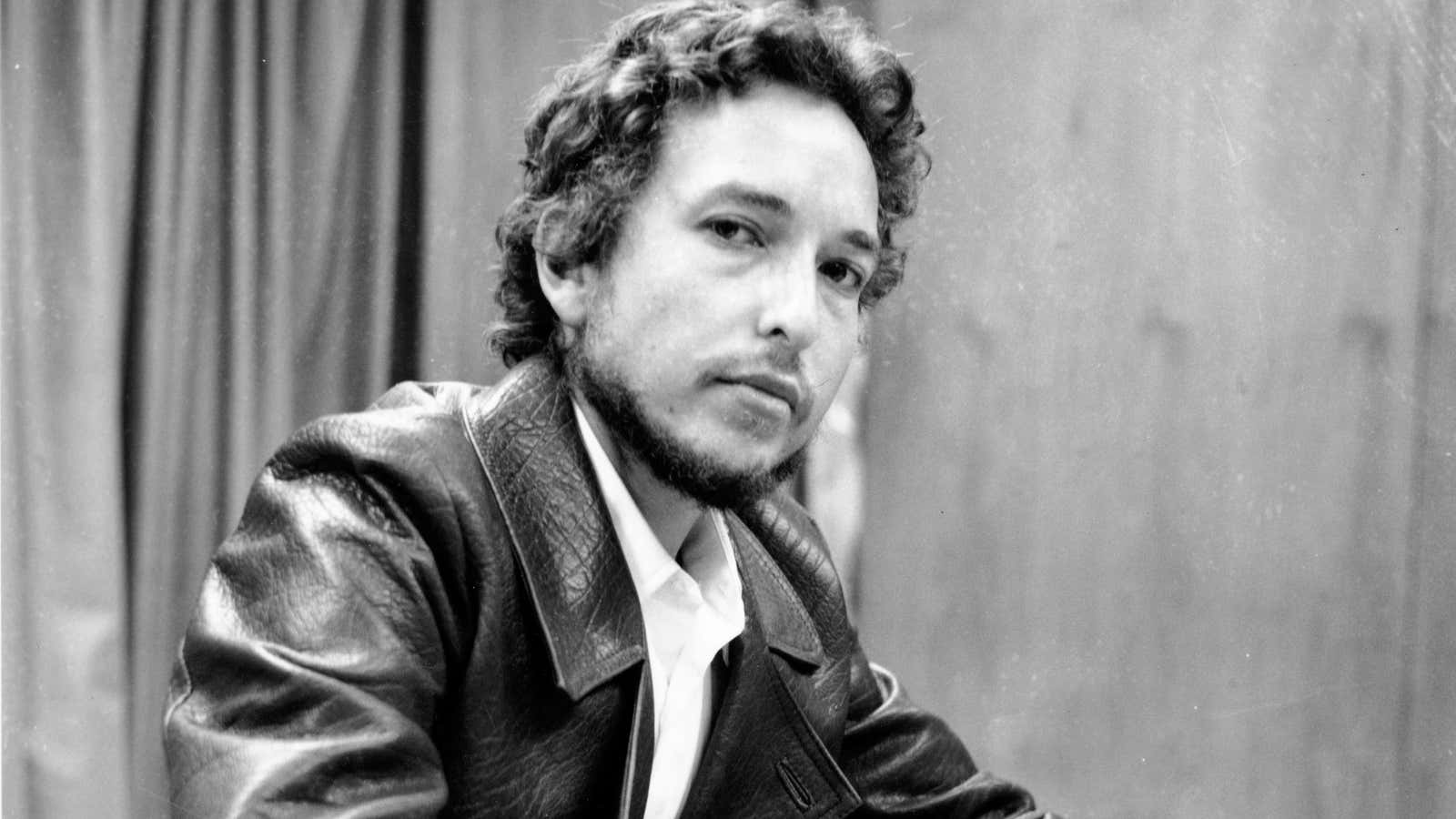Today, Bob Dylan won this year’s Nobel prize in literature. He’s the first American to receive the honor in 20 years, and the first professional musician to win the prize, ever.
But are his songs literature?
By many accounts, yes. Consider the sheer volume of critical and academic work on Dylan’s lyrics: An estimated 1,000 books have been devoted to the Minnesota-born singer-songwriter in his 75 years, reports the Chronicle of Higher Education. His song “Desolation Row” is in the 2006 Oxford Book of American Poetry, and “Mr. Tambourine Man” is in the tenth edition of The Norton Introduction to Literature.
Although Dylan first made his mark on American culture in the 1960s, his craft is part of a tradition that harkens back to the ancient Greeks: lyric poetry. ”What Bob Dylan does is something that goes back further than any other genre of literature,” says David Yaffe, a professor of humanities at Syracuse University and the author of one of the many Dylan titles, Bob Dylan: Like a Complete Unknown.
Lyric poetry is one of the earliest known forms of literature. It is verse that represents the thoughts and emotions of a single poet (as opposed to a narrative poem or one sung by a chorus), usually with musical accompaniment. Traditionally the lyre is associated with this kind of emotional crooning, first made famous by the Greeks and Horace, then medieval troubadours, and much later by Romantic poets like John Keats and William Blake.
Much early poetry was originally sung, but since we only have records of what was said, and not how, we don’t know how this early poetry sounded. This split between written and sung poetry became wider with the invention of the printing press. ”Since Gutenberg, poets started writing for the page and not for the ear,” says Yaffe.
The printer had an influence on what we see as popular and high forms of art. ”Since the sheet-music era of the 19th century and the beginning of the recording era of the 20th, we’ve had this idea that these songs are meant for popular consumption, and aren’t literature,” says Yaffe. But, he says, we can think of Dylan’s music not only as very good entertainment but as “performed literature.”
Packed with allusion and multi-layered meaning, songs like “Desolation Row” and “Mr. Tambourine Man” are fodder for critics like the legendary Christopher Ricks, who argued for Dylan’s status as a poet in Lyrics: 1962-2001. “A day doesn’t go by when I don’t listen to Dylan or at least think about him and his art,” Ricks told The New York Times when his 2003 book Dylan’s Visions of Sin came out.
Of course not all Dylan’s songs require deep critical processing, which is probably why his literary cred may not be immediately obvious. But as Yaffe points out, even Shakespeare was a playwright for the people. “He wrote not only for royalty but he wrote for the rabble in the pit,” he says. Dylan, too, it turns out, has managed to appeal to boomers, bohemian wannabes, and literary critics alike.
